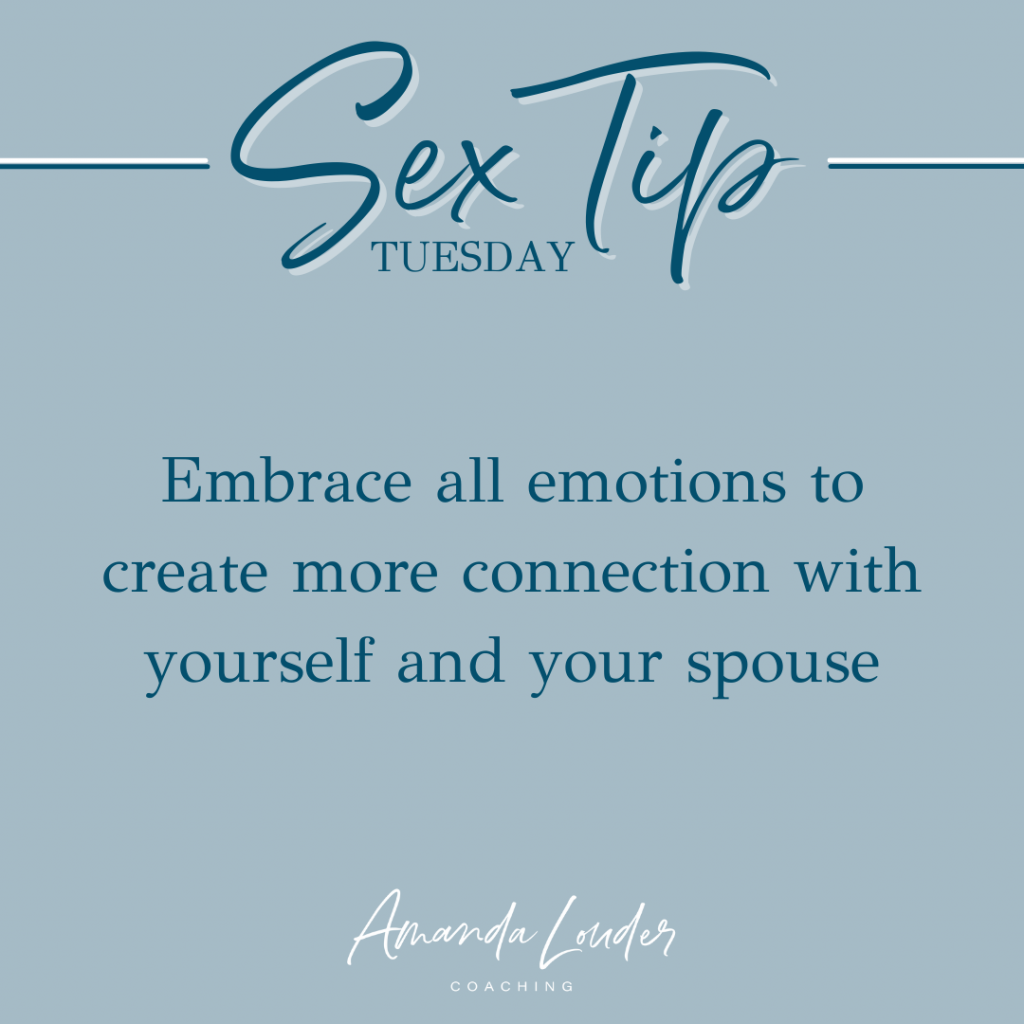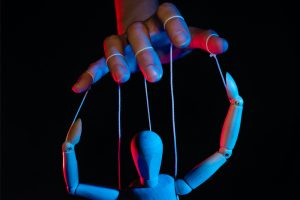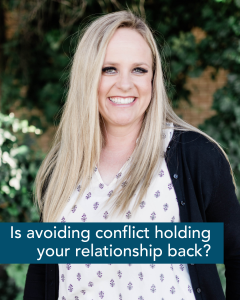
For many of us, we are better at reading our family’s emotions than our own. Why is that and why does it matter? That’s the focus of this episode. We talk about the 6 emotional styles that actually disconnect us from those around us. We talk about why we need to feel our emotions and why that can be difficult. Are you ready to really feel your emotions so that you can have a more intimate relationship with your spouse? Let’s work on it together.
Show Notes:
Follow Amanda on Facebook and Instagram.
Join Amanda’s Private Facebook Group.
References for this episode:
Show Summary:
How in touch are you with your emotions? If you are anything like my clients and most people, you probably aren’t. How in touch are you with your spouse’s emotions or your kids? I bet you can recognize them better than you can recognize your own.
As human’s, especially in families, we are really good about reading each other’s emotions. In Brené Brown’s book Atlas of the Heart she talks about how when she was a child she thought she had magical powers of being able to predict the future. Not twenty years into the future, but 20 minutes for sure. She could see others emotions and the patterns and know how to show up and behave to control things in her favor. And I think a lot of us are that way. She says “people would do almost anything to not feel pain, including causing pain and abusing power, and I understood that there were very few people who could handle being held accountable for causing hurt without rationalizing, blaming, or shutting down.”
We all want to be connected to ourselves and others, but yet we often don’t see how we are getting in our own way of doing that. Especially when it comes to sex. One of the things that I work on a lot with clients is helping them recognize their own emotions and how those emotions are driving their behavior that either connect or disconnect them from their spouse.
Emotional Health is an important component to any healthy relationship. According to the Optimum Health Clinic, ignoring emotions may have an impact on your mental and physical well-being, as well as your relationships.
Oftentimes we are taught to ignore our emotions and that it’s not safe or ok to have them. Men especially are taught that they need to be the strong ones and not show emotions. We often see emotions as a problem instead of feedback on what is happening with us. And if ignored or suppressed, emotions usually intensify in order to get our attention. If we continue to ignore them, our body often uses it as a signal that something else major must be going on for us to ignore something so crucial and it uses a huge amount of energy to express them in more powerful ways.
Take irritation for example. If someone irritates us, but we don’t feel like we should be irritated or can be irritated and we shut it down, it will build and build and eventually probably come out as anger or rage.
Alex Howard, an Author the founder of the Optimum Health Clinic says “so much of the suffering we experience in our lives is all the things we do to try and get away from the feelings and emotions that we have not processed and not dealt with. We can’t be truly intimate and connected to someone if we are trying to hide parts of ourselves that we are ashamed of or haven’t processed.” So it’s not the uncomfortable emotions that are a problem but not dealing with them in a healthy way that is.
Today I want to talk about 6 Emotional Styles developed by Alex Howard that disconnect us in our relationships. Now, before we start out, I think it’s really important to say that we all do this. This is very normal and just part of being human. I don’t want anyone to walk away from this podcast feeling bad about themselves because they’ve been doing these things. This is about awareness. And when we know better we can do better. So, if you recognize yourself in one or more of these emotional styles, this is good information so that you can work to make the changes you want to, so that you can be more connected to yourself and your spouse.
- Avoidance and Distraction: Often when we don’t want to face our emotions we get busy. If we are busy then we don’t have to feel or focus on others. So, if you notice yourself cleaning a lot, being a workaholic, being on multiple devices at a time, or even something as simple as always having the TV or music on in the background most likely you are avoiding and distracting yourself from dealing with uncomfortable emotions. All the distractions stop us from feeling. And when we aren’t feeling we disconnect from ourselves and our spouse. I see this a lot in clients and I hear it described a lot for men. Instead of dealing with the discomfort of creating more intimacy in their marriage, being open and vulnerable and fully known, there is avoidance and distraction by work or chores.
- State Changing: This is what I call buffering. Using something like drugs, alcohol, pornography, gambling, shopping, food, exercise, Netflix, or even sex to change the emotions that we are having. This happens a lot with us as individuals but also in relationships. Sometimes it seems so much easier to just have sex than to actually deal with the problems we are having or the feelings we are feeling. Now some of these are obviously more destructive than others. And there’s nothing inherently wrong with some of these things but it’s how we are using them in an unhealthy way. Episode 100 I talked about how numbing out the bad emotions also numbs out the good emotions. We want both!
- Analysis: This is where we are too much in our heads and not in our bodies and emotions. Sometimes we are good at analyzing our emotions but not actually feeling them. We often appear to be emotionally healthy because we can talk about them but in fact are not because we aren’t actually feeling them.
- Blaming Others: This one I feel like is pretty self explanatory. We blame other people for how we feel. If you’ve listened to me for a while you know that I teach we create our own emotions by the way we think. Other people can definitely influence how we think and feel, but ultimately it comes down to us. And the way we disconnect from ourselves in this one is that we are so focused on the blame that we don’t take the time to feel what we are actually feeling, whatever that emotion is. And often we blame our partner which also disconnects us from them.
- Empath: This is where we feel everyone else’s emotions instead of feeling our own. This is what Brené Brown was describing in that she was reading everyone else’s emotions so she could manage situations and manage other people. We do this a lot as couples as well. We can sense our spouse’s desire for sex and work to manage the situation. We can sense our spouse’s anxiety around sexuality so we manage the situation. This is the one I recognized the most in myself. A few months ago I was asked to speak at a retreat. One of the attendees was an energy practitioner and I asked her to do a reading on me. I think I’m pretty healthy at dealing with my emotions and wanted to see what she came up with. I was really surprised with the emotions that she found because I hadn’t been feeling any of them. But what she told me was that these emotions weren’t mine and I had absorbed them from those around me. I consider myself to be pretty strong and be able to handle things well, so I had absorbed all the hard emotions that others weren’t able to handle and it was wearing me down. It was quite enlightening.
- Somatizing: This is where we feel our emotions as physical symptoms. Now we all do this sometimes. Instead of feeling the anger, we get a headache. Instead of feeling the worry, we get a stomach ache. Instead of being frustrated about something, we get lower back pain. A lot of times if we consistently don’t process our emotions they stay stuck in our bodies and manifest as physical symptoms. There are tons of books on this that are so interesting. The most popular one is called The Emotion Code by Dr. Bradley Nelson.
So now that we’ve gone through the 6 styles and you’ve probably recognized how you do one or more of these, what now?
It might feel very overwhelming to think about feeling your feelings after you have not felt them for so long. The thought of feeling frustration, anger, pain, disappointment, and shame can feel very scary. And for some, your brain actually interprets these feelings as if you are literally going to die (although you won’t). I know a lot of women I work with are very scared to feel passion and desire because they have suppressed it for so long. They are afraid of letting themselves feel these things because they are worried that if they do they will go down a path they don’t want to go.
Emotions are an important part of our human experience. I believe it’s one of the things that we are supposed to learn more about here on earth. Emotions can’t actually hurt you. But they are truth tellers. They are signals to let you know when something is in alignment with who you are and when it’s not. They are an inner compass that point us towards what is good and right for us.
Some things to remember:
- You are always in control. You get to choose whether to face these emotions or not. I remember that before I found coaching I felt so out of control with my emotions. I felt like they ruled my life. After I had been in coaching for about 6 months I asked my husband what changes he noticed in me. His response was that I had a lot fewer emotional breakdowns. And he was so right. I’ve come so far from where I used to be because I understand how to manage my emotions in a much healthier way most of the time.
- Go slow. You don’t have to learn how to do this all at once.
- You don’t have to do it alone. Some are able to do it alone and some need support going through this process. This is where a coach, like myself, can really be helpful. Learning to help you process these emotions in a safe and loving environment.
- Honor the resistance. Rather than seeing your emotions as a dysfunction that needs to be gotten rid of, see it as the intelligence that has protected you and kept you safe. When I am doing somatic work with my clients, this is one of the areas that we focus on. The emotions served a purpose, let’s find the purpose and be grateful for it.
- Be compassionate with yourself as you go through this process. If you are trying to heal anger, it’s not going to help you be angry about it. Give yourself what you need. Brene Brown says that “compassion is the greatest motivator for change.”
- An emotionally healthy life and relationship encompasses all emotions. Of course you are going to have moments where you feel angry sad, frustration. You are also going to have moments where you feel joy, happiness, and relief. All of this is normal and to be expected.
6 Steps to Tune Into Your Emotions
- Find a quiet moment, take a seat and breathe
- Notice what you’re feeling. Is there a sense of emotion?
- Get to know the emotion, follow it and breathe into it
- Emotions may shift, follow the energy – Ask: What are you trying to tell me?
- Invite curiosity, get to know the feeling
- Notice how you feel at the end of the practice
You can do this anytime you are feeling an emotion.
Connection to yourself and your spouse is emotional work. Once you do the emotional work it’s a lot easier to start doing the cognitive work that it takes to change things. And of course, if you want to learn more, get help and support, I do all of this within my membership. You learn all about it at amandalouder.com/membership




